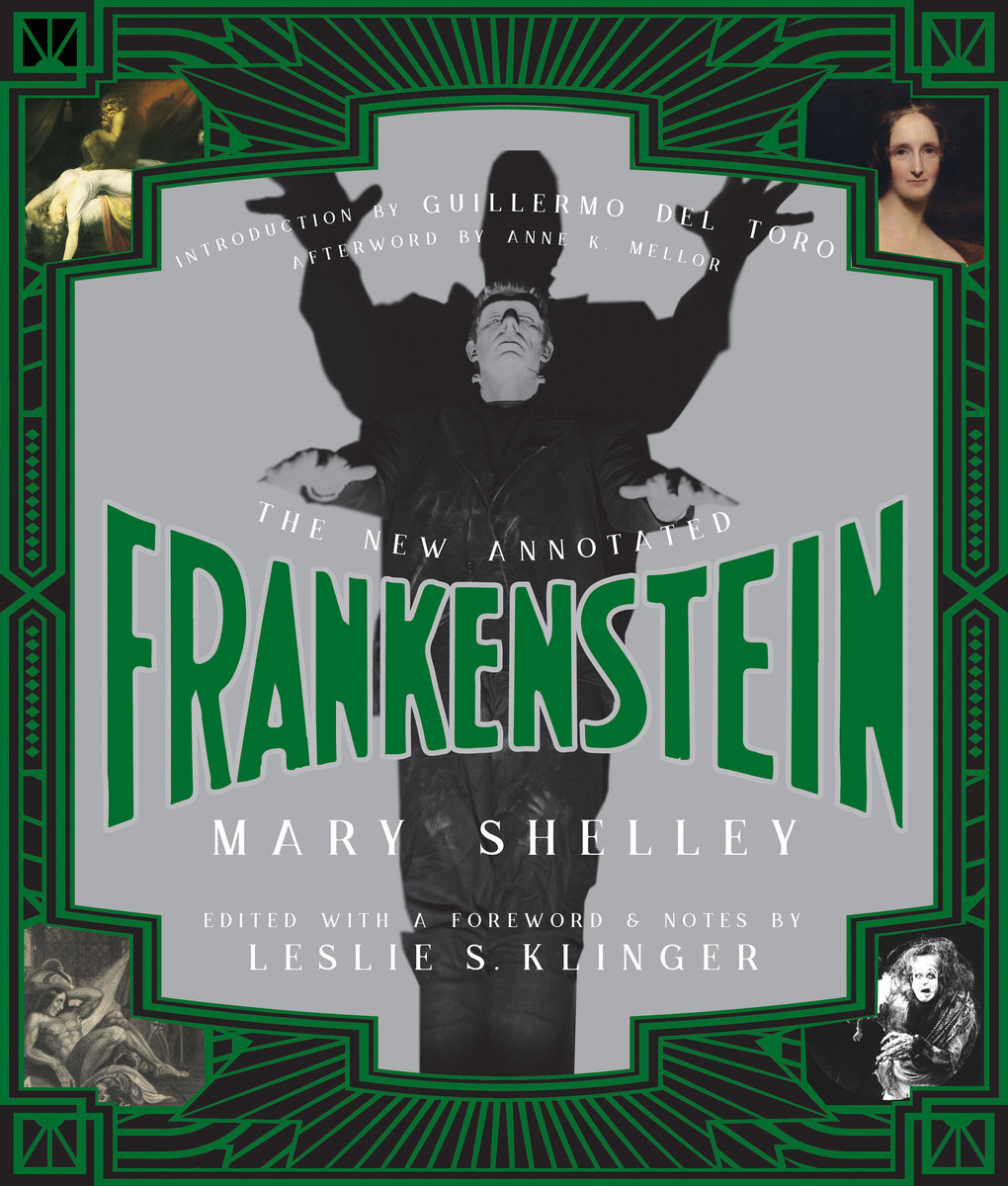Two centuries after its original publication, Mary Shelley´s classic tale of gothic horror comes to vivid life in "what may very well be the best presentation of the novel" to date (Guillermo del Toro).
"Remarkably, a nineteen-year-old, writing her first novel, penned a tale that combines tragedy, morality, social commentary, and a thoughtful examination of the very nature of knowledge," writes best-selling author Leslie S. Klinger in his foreword to The New Annotated Frankenstein. Despite its undeniable status as one of the most influential works of fiction ever written, Mary Shelley´s novel is often reductively dismissed as the wellspring for tacky monster films or as a cautionary tale about experimental science gone haywire. Now, two centuries after the first publication of Frankenstein, Klinger revives Shelley´s gothic masterpiece by reproducing her original text with the most lavishly illustrated and comprehensively annotated edition to date.
Featuring over 200 illustrations and nearly 1,000 annotations, this sumptuous volume recaptures Shelley´s early nineteenth-century world with historical precision and imaginative breadth, tracing the social and political roots of the author´s revolutionary brand of Romanticism. Braiding together decades of scholarship with his own keen insights, Klinger recounts Frankenstein´s indelible contributions to the realms of science fiction, feminist theory, and modern intellectual history-not to mention film history and popular culture. The result of Klinger´s exhaustive research is a multifaceted portrait of one of Western literature´s most divinely gifted prodigies, a young novelist who defied her era´s restrictions on female ambitions by independently supporting herself and her children as a writer and editor.
Born in a world of men in the midst of a political and an emerging industrial revolution, Shelley crafted a horror story that, beyond its incisive commentary on her own milieu, is widely recognized as the first work of science fiction. The daughter of a pioneering feminist and an Enlightenment philosopher, Shelley lived and wrote at the center of British Romanticism, the exuberant, young movement that rebelled against tradition and reason and "with a rebellious scream gave birth to a world of gods and monsters" (del Toro).
Following his best-selling The New Annotated H. P. Lovecraft and The New Annotated Sherlock Holmes, Klinger not only considers Shelley´s original 1818 text but, for the first time in any annotated volume, traces the effects of her significant revisions in the 1823 and 1831 editions. With an afterword by renowned literary scholar Anne K. Mellor, The New Annotated Frankenstein celebrates the prescient genius and undying legacy of the world´s "first truly modern myth."
The New Annotated Frankenstein includes:
Nearly 1,000 notes that provide information and historical context on every aspect of Frankenstein and of Mary Shelley´s life
Over 200 illustrations, including original artwork from the 1831 edition and dozens of photographs of real-world locations that appear in the novel
Extensive listings of films and theatrical adaptations
An introduction by Guillermo del Toro and an afterword by Anne K. Mellor


